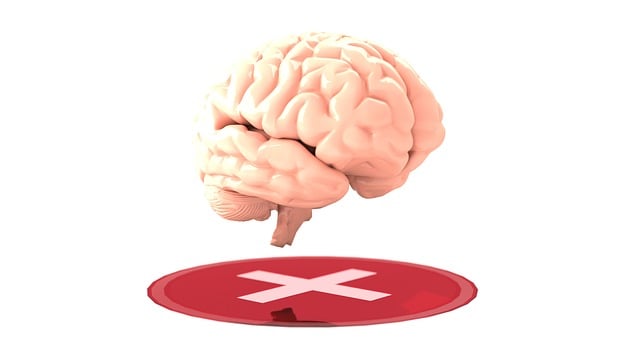Early intervention through specialized therapy for young children with dissociative disorder is vital to prevent substance abuse. Evidence-based approaches like Trauma-focused Cognitive Behavioral Therapy (TF-CBT) address underlying triggers, improve mental wellness, and teach coping mechanisms. This holistic strategy, involving family support and community resources, empowers children with emotion regulation skills, reducing future risk of substance abuse.
In the realm of substance abuse prevention, identifying and addressing underlying causes is paramount. This article explores comprehensive risk reduction strategies, focusing on evidence-based therapy approaches tailored for young children with dissociative disorder. By delving into these innovative treatments, we aim to highlight the importance of early intervention and family support, alongside community resources, for fostering long-term recovery. Leveraging these strategies, folks can navigate the path to healing and reclaim their lives.
- Identifying and Addressing Underlying Causes
- Evidence-Based Therapy Approaches for Young Children with Dissociative Disorder
- Family Support and Community Resources for Long-Term Recovery
Identifying and Addressing Underlying Causes

Identifying and addressing underlying causes is a crucial step in risk reduction for substance abuse, especially among young children who may be dealing with complex issues. Disorders such as dissociative disorder can lead to self-destructive behaviors if left unaddressed. Therapy plays a pivotal role here, offering specialized treatment plans tailored to the child’s needs. Through therapy, young individuals can develop essential coping mechanisms and learn healthy ways to express and manage their emotions.
This process involves delving into potential triggers, including past traumas or mental health issues. By fostering mental wellness and self-awareness exercises, children gain tools for conflict resolution techniques. These strategies not only help in managing symptoms but also empower them to make informed choices, reducing the risk of substance abuse as they grow older.
Evidence-Based Therapy Approaches for Young Children with Dissociative Disorder

Early intervention is crucial when it comes to addressing substance abuse issues in young children with dissociative disorder. Evidence-based therapy approaches have proven effective in helping these children navigate their complex emotional states and develop healthy coping mechanisms. One such approach is trauma-focused cognitive behavioral therapy (TF-CBT), which assists children in understanding and managing their dissociation, anxiety, and depression. This therapy involves both the child and their primary caregivers, fostering a collaborative environment to enhance treatment adherence.
Mental health professionals play a vital role in facilitating these therapeutic processes through comprehensive risk assessments. By implementing tailored strategies, such as empathy-building exercises and stress management workshops, they can create a supportive setting. These practices not only help children express their feelings but also teach them valuable skills for regulating emotions and reducing the risk of substance abuse later in life. Additionally, organizing group therapy sessions with peers facing similar challenges can foster a sense of belonging and camaraderie, further enhancing recovery outcomes.
Family Support and Community Resources for Long-Term Recovery

Family support and community resources play a pivotal role in fostering long-term recovery for individuals struggling with substance abuse. These networks provide a crucial safety net, offering both practical assistance and emotional backing. For children who have experienced trauma or dissociative disorders, early intervention through therapy is essential. Specialized mental health services tailored to young minds can address underlying issues, promoting healthier coping mechanisms.
Community-based programs designed around Mental Health Education offer valuable tools for self-awareness exercises and anxiety relief. By integrating these initiatives into the fabric of affected individuals’ lives, support systems encourage sustained recovery. This holistic approach recognizes that healing is not solely dependent on abstinence but also on building resilience, enhancing mental well-being, and fostering a sense of belonging within supportive communities.
In addressing substance abuse, a multifaceted approach is essential. By identifying and addressing underlying causes, providing evidence-based therapy for young children with dissociative disorder, and leveraging family support alongside community resources, we can significantly reduce risks and foster long-term recovery. These strategies, when implemented holistically, offer hope and healing to those struggling with addiction. For families affected by dissociative disorder, access to specialized therapy, coupled with a strong support network, is crucial for breaking the cycle of abuse and promoting lasting well-being.












